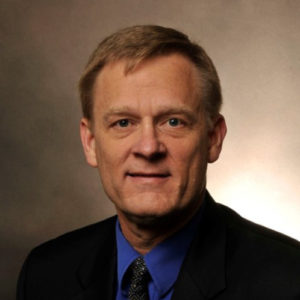
Dr. Bruce Ahrendsen is a native of Iowa with a B.S. degree in agricultural business from Iowa State University and Masters and Ph.D. degrees in economics from North Carolina State University. He was raised on his family’s livestock and crop farm and has held a position with the U.S. Department of Agriculture where he supervised farm and housing credit programs. Bruce is a professor in the Department of Agricultural Economics and Agribusiness at the University of Arkansas where he been since 1990. His major research interests include issues of financial institutions and markets, credit evaluation, financial management, credit programs, farmland leasing, and asset valuation, and includes research publications on farm loan programs and beginning farmers.
Bruce currently serves on the Agribusiness Industry Council at the Federal Reserve Bank of St. Louis. He has taught an undergraduate course in agricultural finance and graduate courses in financial management, quantitative methods, econometrics, and international agribusiness. Bruce also has extensive leadership experience in international education where he leads intensive, integrated case studies at International MBA in Agribusiness programs in Europe and Asia and has led the double Master’s degree program in agricultural economics and rural development at the University of Arkansas and six universities in Europe.

Dr. Clarence Bunch is currently the Agriculture Natural Resource Program Leader for Prairie View A&M University (PVAMU) College of Agriculture and Human Science (CAHS) Cooperative Extension Program (CEP). His responsibilities include providing visionary leadership to County Extension Agents and direction on the development of statewide Agriculture Extension Education Programs. He is the former Associated Director of Extension at Central State University, where he designed, created, organized, and provided statewide administration, strategic direction, fiscal, and program development for Central State University 1890 Cooperative Extension Service (CSUE). He was responsible for leadership over fiscal operation and programmatic operation. He developed CSUE first 5-year strategic plan, MOUs and 1 Operating Principle Agreement between the Ohio State University, wrote CSUE first 5-year Plan of Work, first 5-year Facility Grants, hired CSUE first leadership and campus staff.
In addition, Dr. Clarence Bunch is a former employee for the USDA Natural Resources Conservation Service in 4 states (Iowa, Louisiana, Ohio, and Oklahoma) and in 8 different counties. He has served as National Employee Development CADRE, National Conservation Innovation Grant reviewer, State Outreach Coordinator, State Soil Conservationist, State Conservation Innovation Grant’s Coordinator, State Cultural Resource Conservation Coordinator, State Wetland Reserve Program Monitoring Coordinator, and State Food Security Act Program Coordinator, multi-county Resource Conservationist and Development Coordinator, county District Conservationist, Soil Conservationist, and Soil Conservation Technician and provided technical and programmatic leadership to develop and implement USDA programs and policies. He is former Senior Pastor of the City of Zion and First Zion Baptist Church. He is an ordained Clergy.
Furthermore, Dr. Bunch has built partnerships and provided leadership with local, federal, state, and county agriculture organizations. He has served in numerous roles with community and civic organizations. He is a former as Executive Board Member of the NAACP, Member of Board of the Sandusky Citizen Coalition, and member of the Ohio NRCS Civil Rights Committee, and Assistant High School Football Coach, and an ordain clergy.
Finally, Dr. Bunch, he is Leadership Consultant and author of 3 books. He holds Associate Arts degree in Agricultural Industrial Technology, a Bachelor of Science degree in Agricultural Economics, a Master’s degree in Management, and a Ph. D. in Leadership and Change. He was born and raised in Tallulah, La. and married to his beautiful wife LaStander (Tina) for over 29 years. Together they have three beautiful daughters Tatiana (23), Ayanna (20), and Gianna (12).
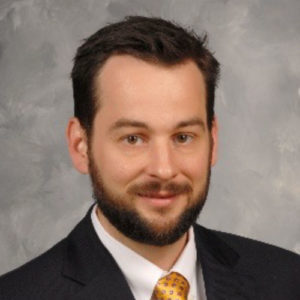
David R. Buys, PhD, MSPH, CPH, FGSA is State Health Specialist for Mississippi State University Extension and Associate Professor in the Department of Food Science, Nutrition, and Health Promotion. Dr. Buys leads research-based health-related efforts across Mississippi’s 82 Counties with a focus on preventing and managing chronic diseases; promoting mental health including opioid misuse and suicide prevention; and creating healthy home environments. He teaches on a variety of topics including gerontology, nutritional epidemiology, social determinants of health, health professions, and other matters; he also mentors undergraduate and graduate students.
Dr. Buys has competed for and leads projects funded with more than $10 million in federal support from agencies including the Centers for Disease Control and Prevention, the Substance Abuse and Mental Health Services Administration, the United States Department of Agriculture, the Health Resources and Services Administration, and other partners.
He has authored 45 peer-reviewed articles published across journals such as Public Health Nutrition, the American Journal of Public Health, The Gerontologist, the Journals of Gerontology: Medical Sciences, the Journal of Extension, and other leading journals.
Dr. Buys is actively involved in multiple professional associations, including the American Public Health Association; he is past-president of the Mississippi Public Health Association.
He completed formal training in medical sociology, health services research, and epidemiology from Mississippi College, Auburn University, and the University of Alabama at Birmingham. He is Certified in Public Health by the National Board of Public Health Examiners and is a Fellow of the Gerontological Society of America.
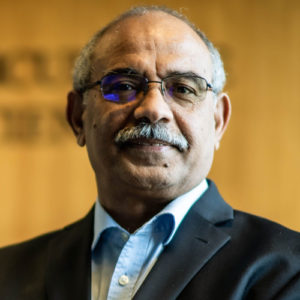
Dr. Ali Fares is the Endowed Professor at Prairie View A&M University (PVAMU),Texas and Chair of Water Security, Water Energy and Food Nexus. Professor Fares served on administrative positions as Interim Vice President of Research, Interim Dean and Director, and Associate Director of Research. He served as a Professor of watershed hydrology at the University of Hawaii-Manoa for 11 years during which he established an academic water resource program. Most recently, Professor Fares served as the editor of Climate Change and Extreme Events that was published in February 2021. He is currently the editor of the Water Security Book Series and has published 14 book chapters, over 20 conference proceedings, and over 74 articles in peer reviewed journals. His research interests include disaster preparedness and resiliency, flood prediction and mitigation, water security, water-energy-food nexus, watershed hydrology and management, water allocation, irrigation management, and adaptation and mitigation of climate variability. He received his M.S and Doctoral Degrees from the University of Florida and he also received his B.S of Horticultural Engineering, University of Sussa, Tunisia.
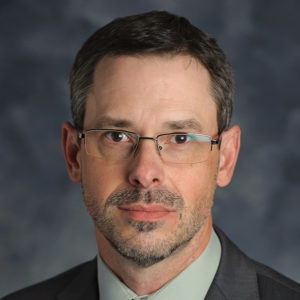
Dr. John J. Green is Director of the Southern Rural Development Center (SRDC) and Professor in the Mississippi State University (MSU) Dept. of Agricultural Economics and Affiliated Faculty in the Dept. of Sociology. The SRDC is one of four Regional Rural Development Centers in the U.S. working to build the capacity of Land Grant Universities to address critical development concerns. Before joining the SRDC, he served as Director of the Center for Population Studies and faculty in the Department of Sociology and Anthropology at the University of Mississippi as well as in several capacities at Delta State University through the Center for Community and Economic Development and the Division of Social Sciences and History. John received his BA in Political Science and MS in Sociology from MSU, followed by his PhD in Rural Sociology from the University of Missouri-Columbia.
His areas of interest include rural and regional socioeconomic development, population change, and use of data to inform policy and programmatic decision-making. He has authored numerous publications, served as Editor of the journal Community Development and the Journal of Rural Social Sciences. John is an active member of the Delta Directions Consortium and has served in numerous leadership positions with the Southern Rural Sociological Association, Rural Sociological Society, and International Rural Sociology Association. Furthermore, John was Vice-Chair of the Mississippi Complete Count Committee for the 2020 Census and Program Scholar with the Mississippi Humanities Council and Museum on Main Street Smithsonian Institute’s traveling exhibit, Crossroads: Change in Rural America.
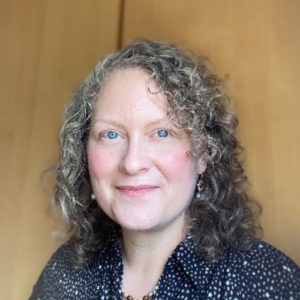
Wendy Fink is Executive Director of the Academic Programs Section (APS) of the Board on Agriculture Assembly & Assistant Vice President for the Office of Food, Agriculture & Natural Resources (FANR) at APLU. Wendy provides strategic guidance and leadership to APS to elevate the teaching mission within FANR and among federal policymakers. She engages with APS leadership to set goals and priorities and host online and in-person events of relevance to members. She encourages collaboration between member institutions, promotes the teaching mission through awards for excellence and innovation, and has conducted research on the employability skills preparedness of new graduates. As Assistant VP for FANR, she works on cross-office collaborations that benefit FANR and APLU.
Previously, Wendy worked with the Board on Natural Resources and the Board on Oceans, Atmosphere, and Climate on federal relations requests as well as a strategic roadmap for science, education and outreach in the natural resources. Wendy helped lead APLU’s efforts to celebrate the 150th anniversary of the Morrill Act by having public universities be a centerpiece of the 2012 Smithsonian Folklife Festival.
Prior to joining APLU, Wendy spent five years at the Pew Initiative on Food and Biotechnology (PIFB) as Manager of Science and Public Policy, assisting in development of reports and conferences which contributed to public discussion of agricultural biotechnology.
Before PIFB, Wendy worked as legislative assistant for Rep. Bob Schaffer (R-CO), providing legislative advice and handling constituent matters related to agricultural, natural resources, science, energy, and transportation issues.
Prior to her work in Washington, she worked for several employers, including the Colorado Department of Agriculture, Colorado Corn Growers Association, and U.S. Environmental Protection Agency (EPA).
Wendy received her master’s degrees in agronomy and history, and her undergraduate degree in anthropology from Kansas State University.
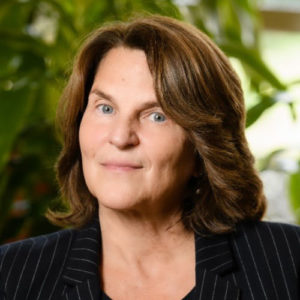
Dr. Leslie Hossfeld, Dean of the College of Behavioral, Social and Health Sciences (CBSHS) at Clemson University
Dr. Leslie Hossfeld is trained in Rural Sociology from North Carolina State University. She has extensive experience examining rural poverty and economic restructuring and has made two presentations to the United States Congress and one to the North Carolina Legislature on job loss and rural economic decline. Hossfeld was founding Director of the Mississippi Food Insecurity Project and serves on the USDA Southern Extension Research Activity project to strengthen local and regional food needs and priorities in 13 Southern region states.
Her current research focuses on multi-disciplinary strategies and collaborative partnerships to understand and alleviate persistent poverty in the Southeast, working to link US local food systems research and initiatives to nutrition, malnutrition (obesity), health outcomes and health disparities to develop policy coherence linking health and agriculture policy. Hossfeld is Dean of the College of Behavioral, Social and Health Sciences at Clemson University.
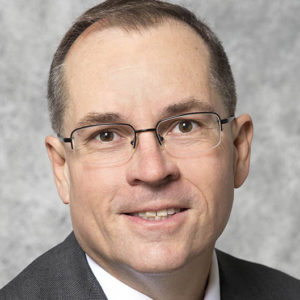
Dr. Kevin Kephart is the deputy director of the Institute of Bioenergy, Climate, and Environment (IBCE) in the USDA National Institute of Food and Agriculture. With a background in federal and state public research, technology transfer, and industry R&D, Kevin has led the diverse team of talent in IBCE since September 2021.
From 2017 to 2019 Kevin led strategic university collaborations and scientific communications at Indigo Ag, Inc., a company based in Boston with a mission that centers around technologies for plant microbiomes and risk mitigation practices for field crops. From 2005 to 2016 he was vice president for research and economic development at South Dakota State University (SDSU), managing a $70 million research portfolio and implementing initiatives such as the Sun Grant Initiative. Over the course of his 30 years at SDSU, Kephart served in a variety of leadership roles, fostering strong organizational growth through the expansion of strategic partnerships in fields such as crop breeding and genetics, biotechnology, human nutrition and the microbiome, pharmaceutical sciences, and precision agriculture. He also spearheaded SDSU’s intellectual property portfolio and led the university’s well-recognized work in wheat R&D through new partnerships with agricultural technology companies, conservation groups, and grower organizations.
Prior to his term as vice president at SDSU, Kevin served as director of the South Dakota Agricultural Experiment Station. He served as co-chair of the Technical Advisory Committee of the USDA/DOE Biomass R&D Initiative from 2012 to 2016, one of numerous board positions he has held. Kevin earned a B.S. degree in agricultural sciences (soils) from Montana State University, an M.S. degree in agronomy from the University of Wyoming, and a Ph.D. in crop production and physiology from Iowa State University.
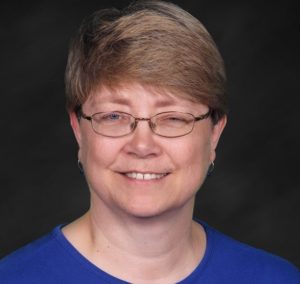
Pam Knox an applied climatologist and meteorologist who has worked since 1983 in a number of positions relating weather and climate to agriculture, industry, urban design, media outreach and education. Her current position is at the University of Georgia as the Director of the University of Georgia Weather Network. In addition, she is a Certified Consulting Meteorologist (CCM). As a CCM, she has provided expert testimony on weather-related cases, including heavy rainfall impacts on hydroplaning and flooding, slip and fall accidents on water or ice, fog-related vehicle incidents, and severe weather damage. She has also provided reports on business impacts of adverse weather and studies of climate-based data needs for businesses and utilities. In her positions as University of Georgia Agricultural Climatologist, Assistant State Climatologist of Georgia, and State Climatologist of Wisconsin as well as in the National Weather Service, she has provided weather and climate data to a wide variety of users, including university scientists, insurance companies and attorneys, government agencies, agribusinesses, media representatives, educators, and the general public. She has published a number of peer-reviewed papers and given many professional and outreach presentations on topics such as drought impacts on agriculture, climate variability and trends, and data resources on weather and climate for extension agents. She publishes a daily blog which contains climate summaries and outlooks for the Southeastern US as well as links to stories of interest to agricultural producers in the region.

Dr. Fatemeh Malekian is a Professor of Food Science, Director of Southern University Institute for Food, Nutrition and Wellness and project Director for Center of Excellence for Nutrition, Health, Wellness and Quality of Life at Southern University Agricultural Research and Extension Center (SUAREC) in Baton Rouge Louisiana. Dr. Malekian received her Ph.D. and M.S. in Food Science/Food Chemistry and Processing from Louisiana State University (LSU), Dr. Malekian has been director and co-director of a number of projects funded by USDA, FDA and other agencies. Her research focuses on food, nutrition and physical activities, obesity and obesity related diseases, non-traditional meats (rabbit, Goats etc.), product development (Hibiscus, Whey Protein and Resistant Starch), chemical analysis of foods, stability, processing, packaging, and food safety. Dr. Fatemeh provides training and leadership support for extension professionals and paraprofessionals and other individuals throughout Louisiana. Fatemeh’ s influence and leadership is not confined to Louisiana alone. She has been an invited participant internationally in nutrition and food safety programs in Armenia, Kenya, Malawi (Africa), Iran and China. In addition to educating people about nutrition and health, Fatemeh Malekian has directed number of research and extension projects. The results of these projects have made a great impact on people’s lives and well-being.
She has taught undergraduate and graduate courses such as Human Nutrition, Biology, Food Composition and Analysis to name a few. She is also a food safety instructor and lead trainer teaching ServSafe, Seafood HACCP, Better Processing School, Juice and Retail HACCP and most recently Produce Safety. Dr. Malekian is a member of a number of professional and service organizations such as Institute of Food Technologists (IFT), Gamma Sigma Delta, and Kiwanis International. She has been moderator and co-moderator for hot topic symposium on Obesity at the IFT annual meetings, been presenting at different conferences and meetings and has been serving on the local, national and international committees. Prior to joining SUAREC faculty and staff, Dr. Malekian worked at Pennington Biomedical Research Center as Food Analysis Laboratory Director for 12 years. She has received a number of awards such as IFT Fellow, SUAREC Outstanding Researcher (twice), Outstanding LSU Alumni, and Community Activist to name a few, for her professional and service accomplishments. She has been peer-reviewer for a number of scientific journals and has published a number of scientific articles, fact sheets, newspaper articles, etc. She has mentored undergraduate and graduate students both at Southern University and Louisiana State University.
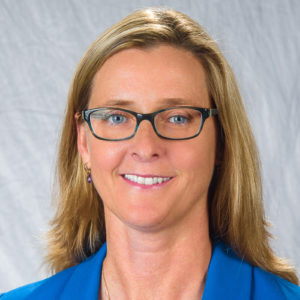
Dr. Rebecca McCulley is the Professor and Chair, Plant and Soil Sciences Department, University of Kentucky. McCulley is also an ecosystem ecologist who has worked for the past 16 years to understand how pastures will respond to and help mitigate climate change and the implications for grazing systems. She has published >90 refereed journal articles and was a co-author on the 2011 Crop Science Society of America’s crop adaptation position statement.
She has served as the Chair of her Department for four years and prior to that served as the Director of the Institute for Sustainability and the Environment under the Vice President of Research on UK’s campus. As Director, she provided leadership, vision, funding, and organizational assistance for >100 faculty, staff, and students located throughout UK’s campus and engaged in sustainability and environment-related education, outreach, and research. Rebecca earned her PhD in Ecology from Colorado State University, her MS in Rangeland Ecology & Management from Texas A&M University, and her BA in Biology from Rice University.
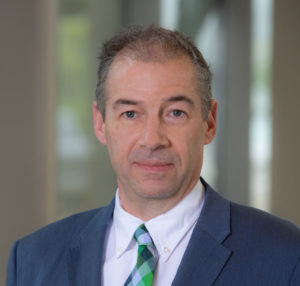
Patrick J. Stover, Ph.D., is the director of the Institute for Advancing Health through Agriculture (IHA) at Texas A&M AgriLife Research. The IHA is the world’s first research institute to bring together precision nutrition, responsive agriculture, and behavioral research to reduce diet-related chronic disease in a way that considers environmental and economic effects. With support from the United States Department of Agriculture – Agriculture Research Service (USDA-ARS) and the State of Texas, the IHA has an annual budget more than 30 M USD annually and includes an embedded USDA-ARS program.
As an international leader in biochemistry, agriculture and nutrition, Stover’s research focuses on the biochemical, genetic and epigenetic mechanisms that underlie the relationships between nutrition, food fortification and human pathologies such as developmental anomalies, neuropathies and cancer. He is an elected member of the National Academy of Sciences and a fellow of the American Association for the Advancement of Science. He is also former president of the American Society for Nutrition and has served two terms on the National Academies of Sciences, Engineering, and Medicine’s Food and Nutrition Board. He received the Presidential Early Career Award for Scientists and Engineers from President Clinton, the highest honor bestowed by the U.S. government on outstanding scientists and engineers beginning their independent careers.
Stover has over 23 years of academic leadership experience, serving as vice chancellor and dean for agriculture and life sciences at Texas A&M AgriLife, director of Texas A&M AgriLife Research, and director the Division of Nutritional Sciences at Cornell University. He received his bachelor’s degree in chemistry from Saint Joseph’s University, a doctorate in biochemistry and molecular biophysics from the Medical College of Virginia and completed his postdoctoral studies in nutritional sciences at the University of California, Berkeley.

Dr. Carolyn J. Williams is a native of Palestine, TX. Her roots in extension began when her mother enrolled her and two younger brothers in the 4-H Program under the leadership of the late Mrs. Ruby Ragsdale – Anderson County Extension Agent. She is an experienced professional educator, manager, and Extension leader with 44 years of experience as a transformation leader and strategic visionary advancing the land-grant mission. Her strong delegating and motivating authority ensure outstanding productivity in the organization. She is the Executive Associate Director of the Cooperative Extension Program and provides statewide administrative oversight and accountability to the four program areas, Agriculture & Natural Resources, 4-H Youth Development, Community & Economic Develop and Family & Community Health in 41 Texas counties. She also assists in strategic planning and engagement with the Texas A&M AgriLife Extension Leadership Team in support of county program implementation and interpretation.
Prior to transferring to Prairie View A&M University, she worked in five Texas counties as Extension agent with the Texas A&M AgriLife Extension Service. After a successful career as a county extension agent for 18 years, she assumed the position as Program Leader for Family & Consumer Sciences with the Cooperative Extension Program in 1997 and the Executive Associate Director position in 2011.
Carolyn has served as the Chair of the Association of Extension Administrators, and Chair of the ECOP Program Committee, LEAD21 Board member. Presently serves on the Board on Agriculture Assembly Policy Board, EDEN Executive Committee, Texas Coming Together for Racial Understanding Task Group, and the 1890 Foundation Board.
She received her BS and MS degrees from Prairie View A&M University in Home Economics Education and Ph.D. from Texas A&M University in Agricultural Education.